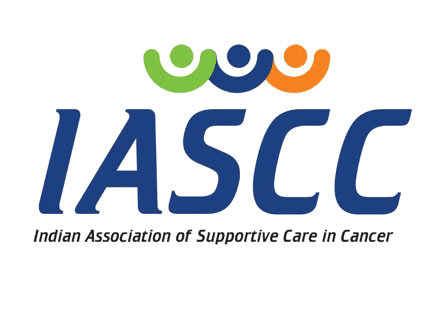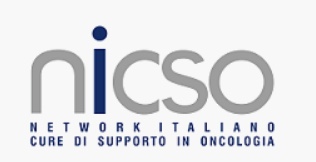MASCC/ISOO 2019 Plenary Sessions
2019 This year’s Annual Meeting will feature three plenary sessions focusing on digital health, treatment toxicities, and sexual health.
2019 This year’s Annual Meeting will feature three plenary sessions focusing on digital health, treatment toxicities, and sexual health.
2019 In February 2019, the MASCC Nutrition and Cachexia Study Group offered a webinar, “The Cachexia Clinic — Building a Supportive Care Necessity.” The webinar, featuring speakers Liz Isenring, PhD, Egidio Del Fabbro, MD, and Rony Dev, MD, provided information and practical considerations for establishing and operating a cachexia clinic within a cancer center. Topics concerned service and team composition, assessment, management, and outcome measures. A detailed description of the webinar is available here. A replay of the webinar is available at Cachexia Clinic Webinar.
2019  In May 2019, MASCC signed an affiliation agreement with the Indian Association of Supportive Care in Cancer (IASCC). IASCC is a subdivision of Nag Foundation, a public charitable trust in Pune, Maharashtra, India, with a mandate of cancer care, research, and education. The IASCC’s mission is to promote research and education in the field of oncology supportive care among Indian healthcare providers. Its specific objectives are (1) to promote and undertake supportive care education for oncologists, nurses, and other oncology professionals through courses, modules, and meetings and (2) to collaborate with MASCC on research projects. Through its affiliate program, MASCC aims to create a global network of supportive care organizations that allows for international collaboration, as well as enhancing the experiences of cancer patients worldwide.
In May 2019, MASCC signed an affiliation agreement with the Indian Association of Supportive Care in Cancer (IASCC). IASCC is a subdivision of Nag Foundation, a public charitable trust in Pune, Maharashtra, India, with a mandate of cancer care, research, and education. The IASCC’s mission is to promote research and education in the field of oncology supportive care among Indian healthcare providers. Its specific objectives are (1) to promote and undertake supportive care education for oncologists, nurses, and other oncology professionals through courses, modules, and meetings and (2) to collaborate with MASCC on research projects. Through its affiliate program, MASCC aims to create a global network of supportive care organizations that allows for international collaboration, as well as enhancing the experiences of cancer patients worldwide.
2019 A new Subgroup on Immuno-Oncology (IO) has been formed by members of the Study Group on Neutropenia, Infection, and Myelosuppression and approved by MASCC’s Executive Committee. The Subgroup is led by Chair Bernardo Rapoport and Vice-Chair Mario Lacouture.
 2019 MASCC signed an affiliation agreement with the Network Italiano Cure di Supporto in Oncologia (NICSO), the Italian network of supportive care in oncology. With MASCC affiliation, members of NICSO become full members of MASCC with all membership benefits.
2019 MASCC signed an affiliation agreement with the Network Italiano Cure di Supporto in Oncologia (NICSO), the Italian network of supportive care in oncology. With MASCC affiliation, members of NICSO become full members of MASCC with all membership benefits.
NICSO was formed in 2014 as an open multidisciplinary association for all those who work with patients with cancer. Its mission is to stimulate and facilitate training and scientific research on cancer support therapies in order to offer patients a better quality of life. It aims to improve prevention and treatment of symptoms, co-morbidity, and side effects of anticancer therapies from the time of diagnosis through treatment, post-treatment, and rehabilitation.
 2019 MASCC signed an affiliation agreement with the Association Francophone des Soins Oncologiques de Support (AFSOS), the French-speaking association for supportive care in in oncology. With MASCC affiliation, members of AFSOS become full members of MASCC with all membership benefits.
2019 MASCC signed an affiliation agreement with the Association Francophone des Soins Oncologiques de Support (AFSOS), the French-speaking association for supportive care in in oncology. With MASCC affiliation, members of AFSOS become full members of MASCC with all membership benefits.
Mucositis Research: Pain Management — Friday, June 21, 3:40 - 5:10 PM
The overall goal of this workshop is to bring together basic, translational, and clinical researchers in an exciting and interactive setting to advance the understanding of mucositis mechanisms and management. This year, the theme of the workshop is management of mucositis-associated pain. The program includes presentations by experts about the latest state of the science in mucositis research and an opportunity for young investigators to present their work to an expert audience for specialized feedback and research advice. The workshop will also provide a basis for face-to-face discussions regarding collaborative research, the development of international research networks, and the development of links with multidisciplinary teams to pursue new research opportunities.
Chair: Sharon Elad, DMD, MSc
2017 Carme Font is one of a large group of investigators who have collaborated on a study of differences in the clinical course of venous thromboembolism (VTE) in relation to specific cancer sites (breast, prostate, colorectal, and lung). The study was based on data from an international registry of patients with VTE,* and included almost 4000 adult patients with active cancer.
2017 In a prospective cohort study, Carmen Escalante et al. investigated the prevalence of incidental venous thromboemtolism (VTE) in almost 1100 adult cancer patients on routine staging CT scans of the chest, abdomen, or pelvis. The research team also documented symptoms associated with incidental VTEs and determined the incidence of VTE recurrence in these patients after 3 and 6 months.
2017 MASCC members Paul Jacobsen (Moffitt Cancer Center and Research Institute, Tampa, Florida) and Irma Verdonck-de Leeuw (VU University Medical Center, Amsterdam, The Netherlands) were among the many collaborators on a large-scale meta-analysis (Buffart et al., 2017) designed to evaluate the effects of exercise on quality of life and physical function in adult cancer patients.1 The study also aimed to determine the extent to which demographic, clinical, exercise, and other intervention-related variables moderated the main effects. The analysis included 34 randomized controlled trials that involved more than 4,500 adult cancer patients and that evaluated the effects of exercise on quality of life and physical function. Exercise was found to significantly improve both quality of life and physical function. These effects were unaffected by differences in demographic, clinical, and exercise variables, such as age, sex, education level, marital status, BMI, cancer type, metastatic stage, and treatment. Also, exercise was equally effective during and following cancer treatment.
2016 Kord Kober, PhD, is this year’s winner of the Fatigue Study Group’s Junior Investigator Award for his research on gene expression profiling of inflammation and immune response pathways in breast cancer patients undergoing chemotherapy. In July, Kord and his colleagues, including MASCC members Christine Miaskowski and Judy Mastick, published their paper, “Gene Expression Profiling of Evening Fatigue in Women Undergoing Chemotherapy for Breast Cancer,” in Biological Research for Nursing. The report contains extensive details regarding methodology and gene expression analyses that we cannot include here, but the paper is available for free download.*
2015 In September, 2014, The European Society for Medical Oncology (ESMO) published clinical practice guidelines for maintaining bone health in patients with cancer. The guidelines address both multidisciplinary treatments for reducing skeletal effects of metastatic disease and strategies for minimizing treatment-induced skeletal damage. The guidelines article was published in the Annals of Oncology by R. Coleman, J. J. Body, M. Aapro, P. Hadji, and J. Herrstedt on behalf of the ESMO Guidelines Working Group.*
Many national and international professional organizations have called for increased integration of oncology and palliative care in order to meet the supportive care needs of cancer patients, but to date, there has been a lack of a global consensus on an acceptable level of integration of oncology and palliative care. Study Group members initiated a Delphi survey (three iterations) to develop an international consensus on indicators for the integration of specialty palliative care and oncology programs for hospitalized advanced cancer patients. Respondents, mostly from North America and Europe, reached consensus on 13 major and 30 minor indicators. Major indicators were related to clinical structure (e.g., presence of palliative care inpatient team), processes (e.g., early palliative care referral), outcomes (e.g., median time from diagnosis to palliative care consultation), and education (e.g., routine rotation of oncology fellows to palliative care). The indicators can be used to identify centers with a high level of integration and to facilitate benchmarking, quality improvement, and research.
2016 The MASCC/ESMO Antiemetic Guidelines have been updated as of March, 2016. The guidelines are based on the Copenhagen Consensus Conference on Antiemetic Therapy, June 2015, and have been endorsed by both MASCC and ESMO. This set of evidence-based guidelines represents several important changes and first-time inclusions. This is the first time that recommendations about management of nausea and vomiting in advanced cancer have been included — as opposed to only nausea and vomiting induced by chemotherapy or radiotherapy — and in this respect, the new MASCC/ESMO guidelines differ from those of NCCN and ASCO. The new guidelines contain recommendations for two new NK1 receptor antagonists, rolapitant and netupitant, the latter given in combination with palonosetron (NEPA), and also discuss the use of olanzapine. The combination of an anthracycline with cyclophosphamide, previously considered of medium emetogenic risk (30-90% risk of vomiting) is now considered a high-risk combination (>90% risk of vomiting). However, this remains a special case, since recommendations for the delayed phase differ from those of other chemotherapies of highly emetogenic risk. In addition, carboplatin is now considered a special case with an indication for triple preventative therapy in the acute phase.
2016 In February, 2016, the US Food and Drug Administration approved a single-use injection of fosaprepitant dimeglumine (Emend®) to prevent delayed nausea and vomiting in adults receiving an initial or repeat course of moderately emetogenic chemotherapy. The drug was already approved for highly emetogenic chemotherapy. The approval was based in part on a phase III trial comparing a single IV infusion (150 mg) of fosaprepitant dimeglumine in combination with ondansetron and dexamethasone with a control regimen ondansetron and dexamethasone alone.
2015 On September 2, 2015, the US Food and Drug Administration (FDA) approved rolapitant (Varubi™) for the prevention of chemotherapy-induced nausea and vomiting (CINV). Rolapitant, developed by Tesaro, Inc., is a selective and competitive neurokinin 1 (NK-1) receptor antagonist and is relatively long-acting with a half-life of about 7 days). The approval was based on three phase III clinical trials conducted by a research team that included MASCC members Bernardo Rapoport, Martin Chasen, Allen Poma, Lee Schwartzberg, and Rudolph Navari. These randomized, double-blind, controlled trials established the safety and efficacy of rolapitant. The drug was associated with a significant reduction in vomiting and use of rescue antiemetic drugs. Patients treated with rolapitant also reported both fewer episodes of nausea that interfered with their day-to-day life.
2015 Cancer-related fatigue is a common symptom that significantly affects quality of life and is one with physical, emotional, and cognitive components. Fatigue can be a direct effect of cancer itself or of cancer treatments, such as chemotherapy or radiotherapy, following which it is often a long-term problem. Many patients are not prepared for the degree of fatigue they might experience after treatment and/or not educated in management strategies to cope with it, even though a number of interventions have been found helpful. These include exercise, diet, adequate sleep, education, information, counseling, and complementary therapies.
2015 It is well known that chemotherapy-induced symptoms, including peripheral neuropathy, often lead to the reduction or premature discontinuation of drug dosages in a large proportion of patients. This can mean that patients receive significantly less chemotherapy. The taxanes, paclitaxel and docetaxel, are one class of chemotherapeutic drugs with this effect.